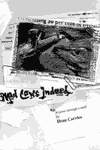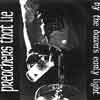Norman Sims (Editor), �The Literary Journalists�
I snatched the phone off the cradle and quickly called my boss while sneaking over to a deserted corner of the store.
�Take a guess who�s here right now,� I whispered when he answered.
�I have no idea.�
�Matthew Joseph Harrington.�
�Who?�
�You know, the guy who wrote all the lies about me being on drugs and cornering him whilst snarling?�
�Oh! Him.�
�Yeah. So can I print out a copy of my version and slip it into his bag when he buys something?�
�Well...�
�Can I pull my version up on the computer and have him read it?�
�Um...�
�Can I back him into a corner and snarl?�
�You know, you�ve already taken the high road with this. He�s acted childish, and now total strangers think he�s a blowhard. Do you really want to stoop to his level?�
�Damn right!�
�Well...�
�You�re no fun anymore.�
I hang up and continue shelving books. After a few minutes, Matthew walks up and asks where the Egyptian section is. I inquire if he�s interested in history, or metaphysical properties, or emphasis on the art and structures. He cuts me off quickly, saying he�s interested in all the categories.
�Ok, well, there are four different sections throughout the store,� I tell him. I personally escort him to each section, explaining how it�s set up, whether the section is alphabetized, and tips of where to look if it�s not. When I finish the tour and speech, he begins browsing through the stacks � no acknowledgement that I�m no longer needed, no thanks for my assistance. I go back to the front counter.
What I hate about this situation is that I�ve now been incredibly helpful and friendly, but there�s been no acknowledgement of what happened previously. He probably thinks that I got in trouble because of the lies that he wrote, and now I�m kissing up to avoid getting fired. He thinks he�s won.
---
Lately there has been a written assignment of sorts for diaryland people to vent frustrations about things they dislike that seem to be common occurrences. Two of my friends, Samantha and Klugarsh, both wrote about surly, bad tempered workers in the service industry.
Since I�m so good at complaining, I sometimes wonder if people reading this think I fit under that category. Indeed, I believe Bethany once commented that she pictured me behind the counter with an eternal scowl on my face. The truth is, that doesn�t fit me at all. Yes, I will answer with, �Won�t that defeat the purpose?� when somebody asks me where the self help section is. Yes, when somebody walks in and shouts something like, �Hey, you don�t got no adult videos here, huh?� I say, �We don�t have any adult videos.� If you walk in five minutes past the time when we stop buying books and ask if I�ll make an exception, I tell them, �Sure, I�ll look at them, but I just want to say that I hate you,� but I do it with a wink and a smile. In general, however, I�m friendly and helpful.
Like what has just happened with Matthew. But I�m quietly seething at the thought that he must think I�m doing this because I fear for the safety of my job as a direct result of him casting aspersions on my character.
---
This book chronicles journalists such as John McPhee, Tracy Kidder, and Tom Wolfe, journalists who take unusual approaches to their stories using unconventional methods such as third-person accounts, insights into what their subjects might have been thinking, speculation and inserting themselves into the story. The stories themselves are interesting enough, but what was truly fascinating were the interviews with the reporters about the stories they covered.
The best example of this came with the dissection of McPhee�s piece, a story chronicling a husband and wife team who drove around collecting roadkill, only to cook and eat it later. Since this was written for The New Yorker, McPhee had to approach the subject rather delicately. If you use the standard story structure like the Inverted Pyramid where the majority of information is stacked on the top, the readers would most likely get too grossed out by the time they�re eating weasel and the piece would be discarded.
The piece (which is brilliant) isn�t about some toothless hillbillies strumming banjo and eating gophers, but rather a report on the encroachment of civilization on nature and how it affects All Things Existing and Edible. But if you take the technical approach, readers would get bored and stop reading before the scene where she flags down a passing sheriff in order to put an injured turtle out of its crippled misery, only to vivisect the animal, collect the eggs, and take them across the highway to bury them so they may hatch.
Well, half of the eggs, anyway. The other half she cooked that night.
No standard journalistic storytelling would work for this piece, so McPhee used something I hadn�t heard of before, calling it the �e� structure. You start with at the bottom and move up, but just around the part where you might lose some people for revulsion, you switch the focus, in this case into the environmental aspects or background information. Before you get bored with the technicalities, you zip back to the original story, joining again where you had left off in the middle.
Neat. Careful readers will notice that I�m about to do this.
Or maybe readers who aren�t careful, as I just spelled it out for you.
---
High road. I keep thinking to myself. I can see Matthew approaching, carrying a stack of books. I look up from my pricing stack.
�You all ready to go, Matthew?� He knows that I know his name. The only way that I could know that is if I�ve read his litany of lies he wrote on that Web site.
He grunts and I walk up to the counter. I start punching in the prices into the register. Halfway through the transaction, I stop, picking up a book I had laid on the side.
�Oh, Matthew, was this yours?� I show him the title, which reads �Writing Fiction� in bold white letters.
�No,� he says in his irritating nasal voice. �I know all about that.�
�Yes,� I say slowly. �I suppose you do, don�t you?�

